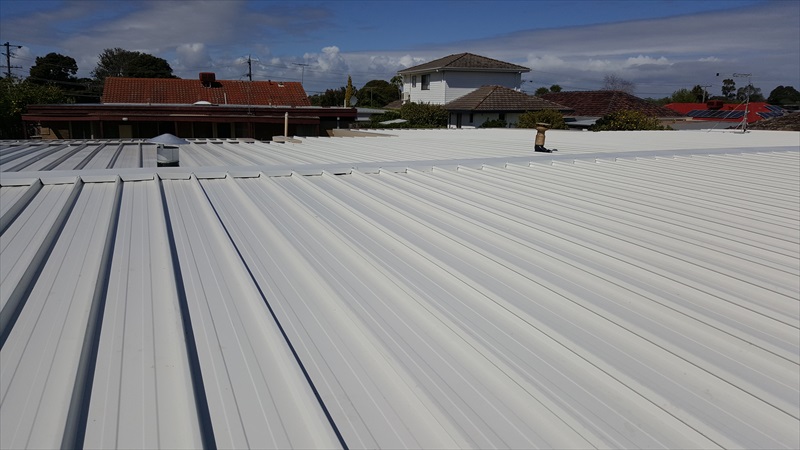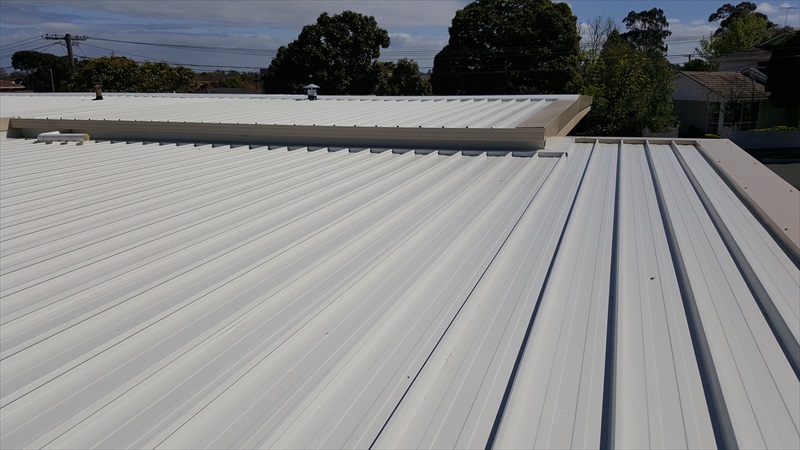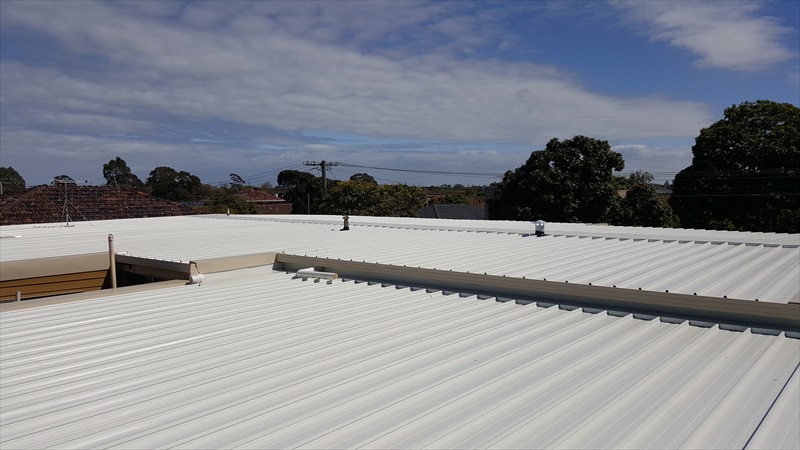Flat Roofing Melbourne
Check out our Flat Roofing Melbourne video and call us today on 1300 218 889 for a free inspection and quote.
Flat roofs can present a difficult challenge to companies not well versed in the installation of flat roofing Melbourne. Lower pitched roofs mean slower moving water which increases the chance of water ingress if flashings, pipes, skylights or chimneys are not installed expertly.
Several considerations need addressed when replacing a flat or low pitched roof – the pitch of the roof is the first thing to be checked. If a roof is installed on a structure pitched lower than the manufacturer’s specifications call for, the warranty will be void.
Flat Roofing Melbourne Requirements
We have outlined the minimum falls required for what material type below:
- Flat Roofing less than 1 degree: The structure will need to be rectified prior to installation of the new roof. Competent roofing companies will be able to install graduated timber roof battens to increase the roof pitch.
- Flat Roofing 1 degree to 2 degrees: 48 (heavy gauge) Klip-Lok steel or similar.
- Flat Roofing 2 degrees to 3 degrees: 42 (standard gauge) Klip-Lok steel or similar.
- Flat Roofing 3 degrees to 5 degrees: Any deck profile will work on this pitch. Consideration should given to the amount of foot traffic expected as some roof profiles are easily damaged from traffic. A Klip-Lok steel profile is recommended.
- Flat Roofing 5 degrees plus: Custom Orb (corrugated) steel can be used.



Another consideration is the spacing between the battens or roof purlins. Wide batten spacing’s require stronger roof profiles to ensure adequate support. Roofing steel profiles will also have specifications regarding batten spacing. Make sure the material used comply or the warranty will be voided also.
Once the profile has been determined the material type should be considered. Due to it’s durability we recommend Colorbond over plain galvanised steel for all your flat roofing Melbourne needs. Colorbond roofing steel has a sophisticated coating that resists reaction from most chemicals associated with suburban roofs. It is also significantly cooler than zincalume steel. On a 37 degree day Surfmist Colorbond will get up to around 60 degrees Celsius where a galvanised metal roof will get up to 110 degrees.
Another mitigating factor that determines the thermal effectiveness is your roof insulation. Most houses with flat roofs suffer more in summer than winter, for this reason care should be exercised when choosing the type of insulation used. Ceiling bats are retentive insulation designed to keep the heat in over winter, overdoing this type of insulation will make it difficult for the heat to escape in summer. Roofing blankets, on the other hand, are designed to reflect the heat in summer while also (to a lesser degree) keep heat in winter. Usually a modest amount of each is the best practice. Experienced roofing companies will be able to advise the best course of action. The installation of a deck roof requires experience and skill. Flat roofs are prone to more problems than traditional roofs if not installed correctly.
Roof penetrations, skylights and chimneys all need to be carefully flashed. The best practice is to ensure a dispersal pan is placed around all types of roof penetrations to minimise water constriction points. Cappings also need to be wide enough to ensure water does not either blow back under the ridges or overflow in the pans along the roof edges.
Flat Roofing Melbourne
We are available 7 days a week for an on-site inspection and our quotations are free of cost and without obligation. If you would like to talk to an expert about Flat Roofing Melbourne, get in touch with us via contact form, or call us on 1300 218 889.









